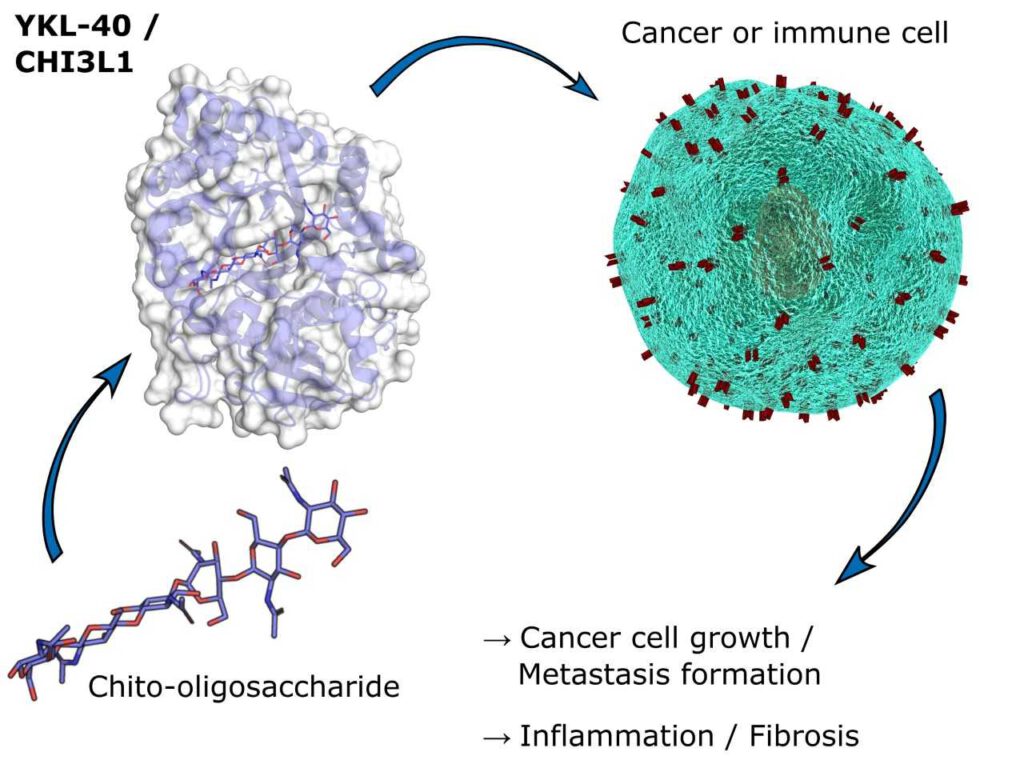______________
Chitin oligosaccharide recognition by human chitinase-like proteins: Deciphering CodeChi at the atomistic level and its impact on cellular signaling

About the Project
Chitin and chitosan polymers are molecules that play an important role in the human immune system’s response to infections. However, when proteins responsible for binding to these molecules, called chitinase-like proteins (CLPs), become dysregulated, they have been associated with inflammatory and infectious diseases, as well as cancer.
This research project aims to shed light on the specific interactions between CLPs and chitin, as well as the impact of these interactions on disease-related processes. To do this, we focus on a particular CLP called YKL-40 (CHI3L1), which is known to be involved in various inflammatory diseases and cancers and is considered a promising therapeutic target.
We will use a combination of computational and experimental methods to study how YKL-40 interacts with different types of chitin oligosaccharides (COS) at the atomic level. Understanding these interactions will be crucial for developing potential chitin-based treatments and drug derivatives.
The project also seeks to investigate how COS binding affects the structure and behavior of YKL-40 and its interaction with a key receptor, IL-13Rα2. This analysis will involve biophysical techniques and cellular assays using reporter cell lines to examine the functional consequences of COS recognition by YKL-40 on a cellular level.
The anticipated results of this research will provide valuable insights into how the human immune system recognizes chitin. This deeper understanding will contribute significantly to the development of novel drugs targeting CLPs for therapeutic purposes.
Overall, this study is essential for expanding our knowledge of the response to chitin mediated by CLPs. The findings may pave the way for innovative therapeutic strategies that address chitin-like proteins and their involvement in inflammatory, infectious, and oncological conditions.



